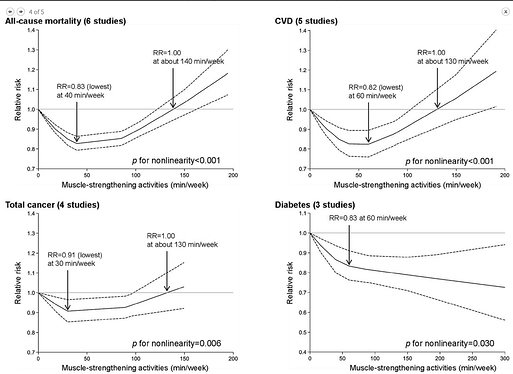In what is hopefully becoming commonsense by now, here’s a bit more research showing that a bit of exercise is awesome for longevity, but doing more than needed is a waste of your precious time.
Conclusion Muscle-strengthening activities were inversely associated with the risk of all-cause mortality and major non-communicable diseases including CVD, total cancer, diabetes and lung cancer; however, the influence of a higher volume of muscle-strengthening activities on all-cause mortality, CVD and total cancer is unclear when considering the observed J-shaped associations.
And to put a finer point on it, more than a “modest” (my term) amount of exercise can be counter-productive to long-term health - with diabetes presenting an interesting departure from the risk profile seen with respect to other cancer, CVD, and all-cause mortality.
Perhaps in the case of diabetes, more is better due to the glucose-consuming effects of prolonged exertion?
See graphic here (from the study):


